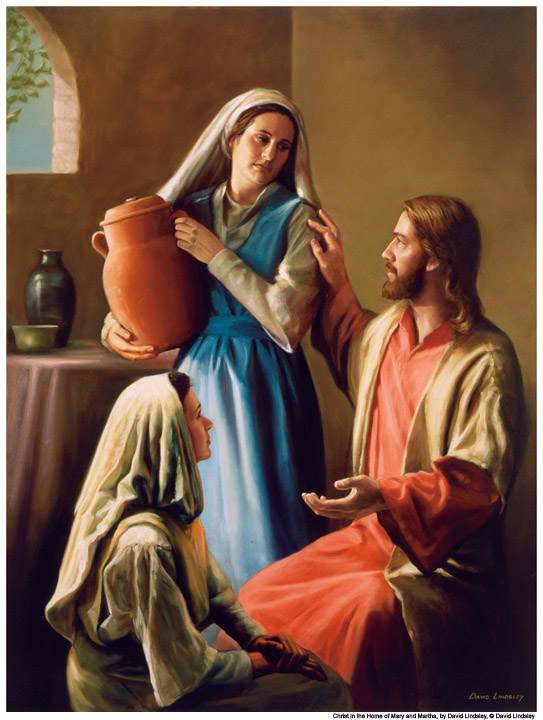Our Father, Who art in heaven, hallowed be Thy Name. Thy kingdom come. Thy will be done, on earth as it is in heaven. Give us this day our daily bread. And forgive us our trespasses, as we forgive those who trespass against us. And lead us not into temptation, but deliver us from evil. Amen.
PATER NOSTER, qui es in caelis, sanctificetur nomen tuum. Adveniat regnum tuum. Fiat voluntas tua, sicut in caelo et in terra. Panem nostrum quotidianum da nobis hodie, et dimitte nobis debita nostra sicut et nos dimittimus debitoribus nostris. Et ne nos inducas in tentationem, sed libera nos a malo. Amen.

“Tell her to come help me in the kitchen!”
Today’s Gospel on the Feast of St. Martha is one of the most charmingly human in scripture. I can just see Martha, coming out of the kitchen, sweat on her brow, wiping her hands on her apron or towel, and walking up to Our Lord – now here’s where we stop… she walked up to GOD ALMIGHTY INCARNATE – and said, “Tell Mary to get in the kitchen and help me!”
I can see this in my mind as clear as day. It is so real, and so human. And, as we all know, Our Sweet Lord said back, “No, Mary has the better part, and it will not be taken away from her.”
But what I want to bring to your attention are the later soul-piercing words of St. Martha, recorded in scripture, authored ultimately by The Holy Ghost, that like so much in scripture has layers of meaning. While addressed in the real, historical moment to her sister Mary, these words cut through time and space to YOU, right now, in this moment, as you read this:
And when she had said these things, she went, and called her sister Mary secretly, saying: The Master is come, and calleth for thee.
Et cum haec dixisset, abiit, et vocavit Mariam sororem suam silentio, dicens: Magister adest, et vocat te.
John 11:28
“The Master is come, and calleth for thee.”
St. Martha, pray for us.
